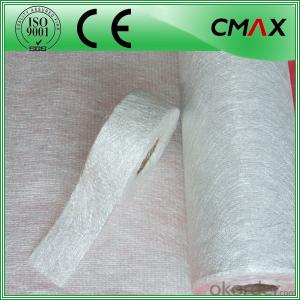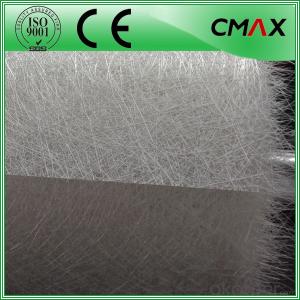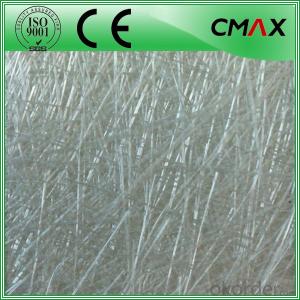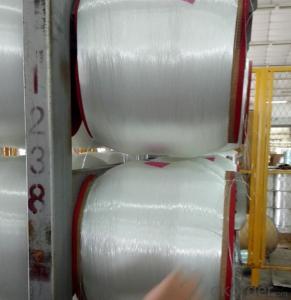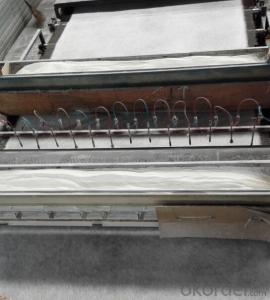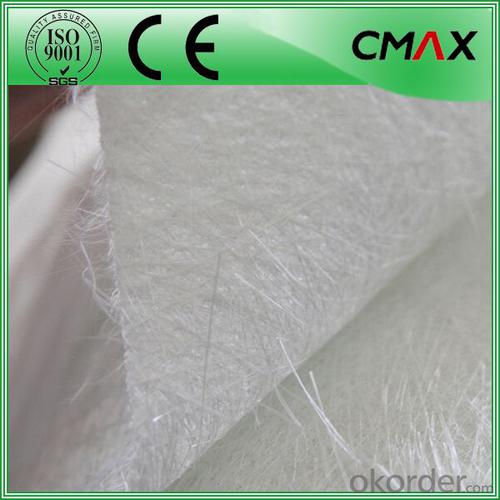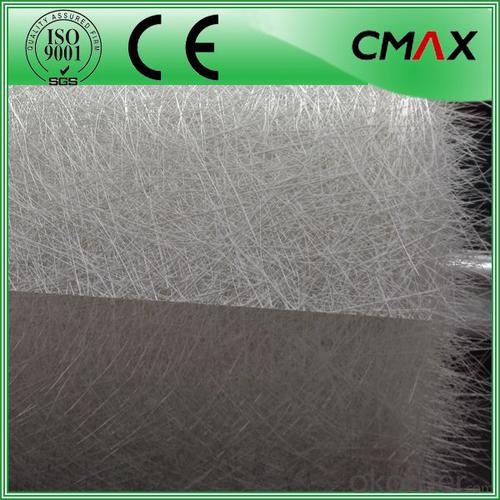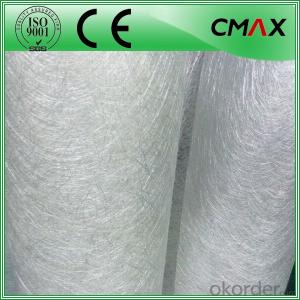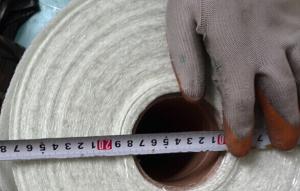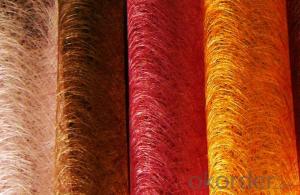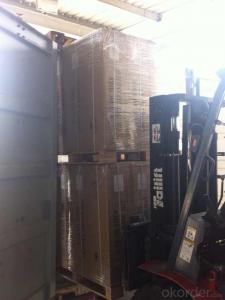Fiberglass Mat Tissue Chopped Strand Mat Fiberglass Mat Jushi Strand Mat
- Loading Port:
- China main port
- Payment Terms:
- TT OR LC
- Min Order Qty:
- 1000 m.t
- Supply Capability:
- 1000000 m.t/month
OKorder Service Pledge
OKorder Financial Service
You Might Also Like
Chopped Strand Mat ,Fiberglass Mat Jushi Strand Mat
Introduction:
Fiberglass chopped strand mat is a non-woven E-or C-glassfiber mat, product manufactured by spreading continuous filament roving of 50mm in length randomly and uniformly in combination with polyester binder in powder form (or other binder in emulsion from). This product is characterized by good combination of resin, easy operation, good wet strength retention, good laminate transparency and low cost. It is suitable for the applications of hand lay-up FRP moldings, such as various sheets and panels, boat hulls, bath tubs, cooling towers, corrosion resistant, vehicles etc.
Function:
Fiberglass chopped strand mat is chopped using the "E" chopped glass and emulsion adhesive bond. It is suitable for hand lay and can enhance the unsaturaed ployester resins.
Product Features:
Consistent thickness and stiffness;
Rapid impregnating and good compatibility with resin;
Superior wet through with less air trap;
Good mechanical properties and high strength of parts.
Superior acid corrosion resistance
Technical Data:
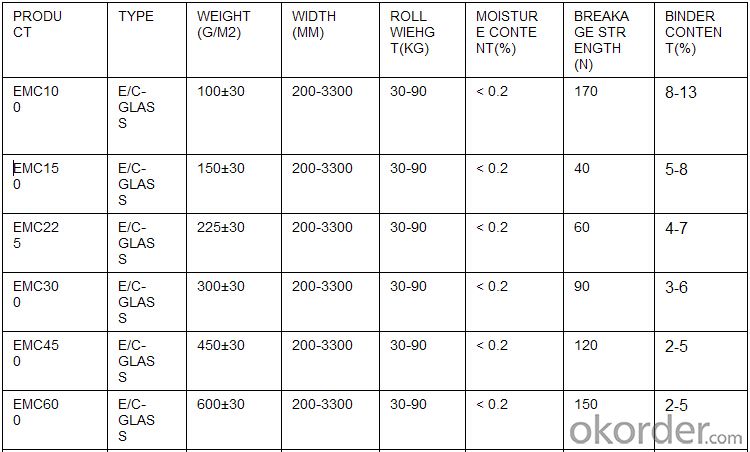
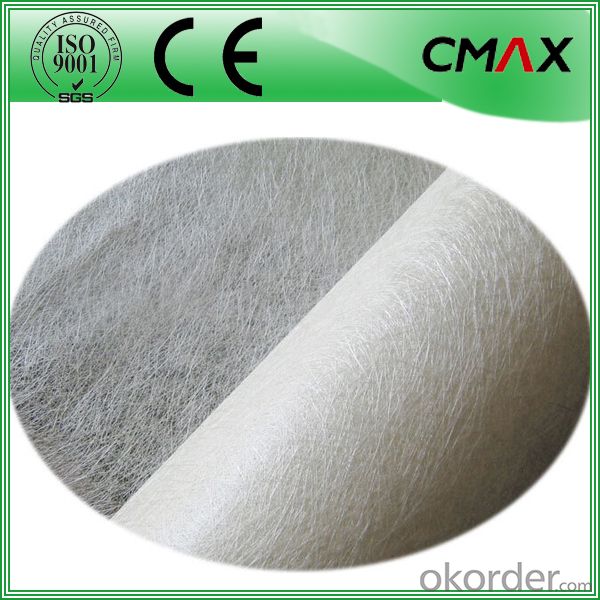
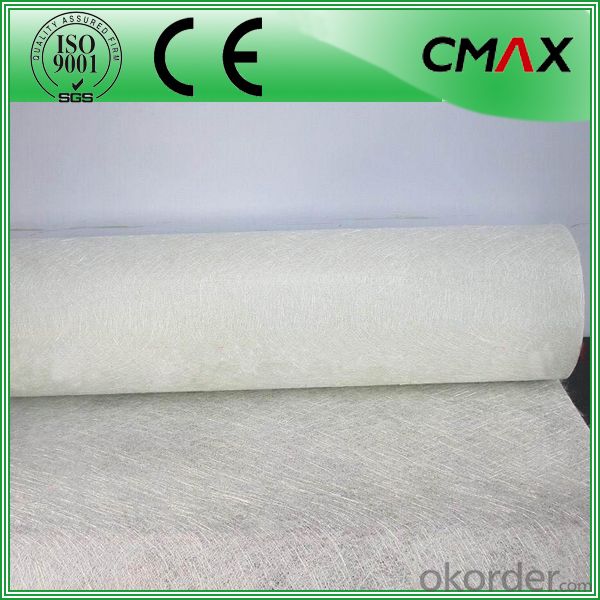
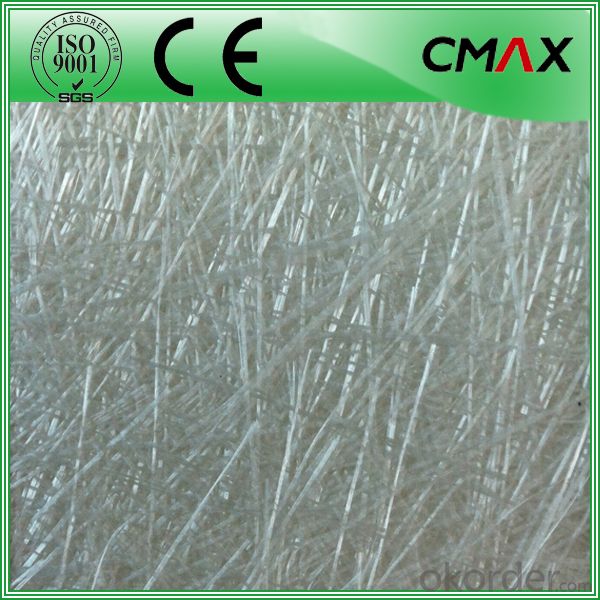
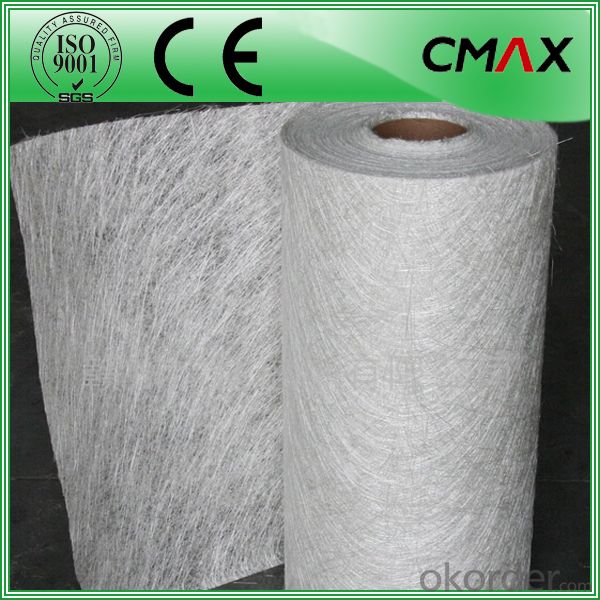
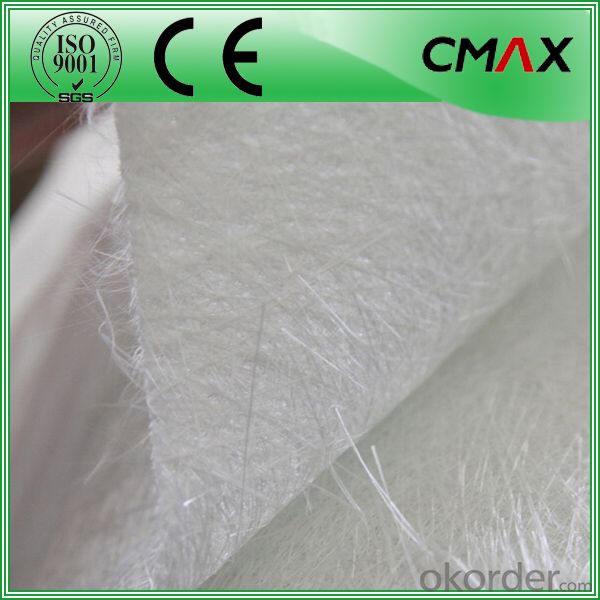
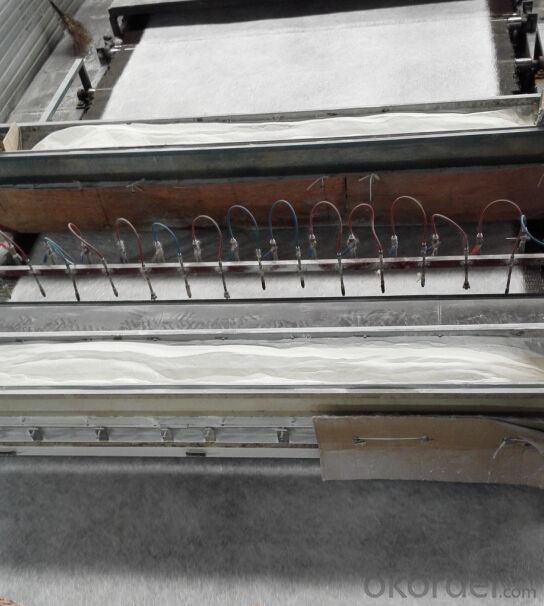
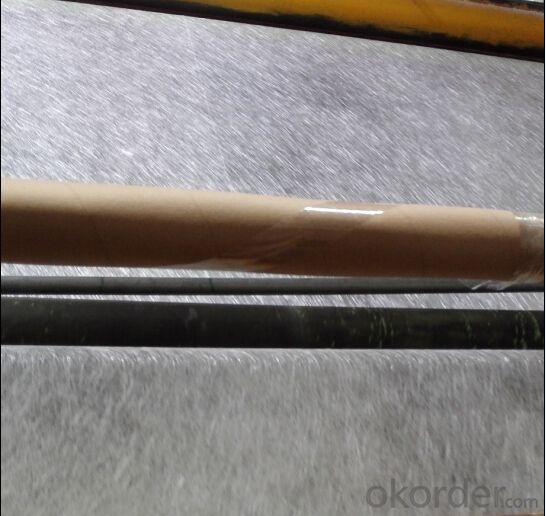
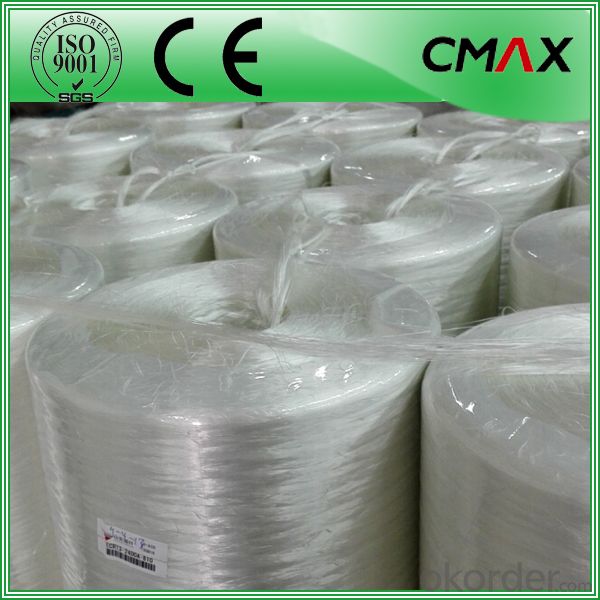
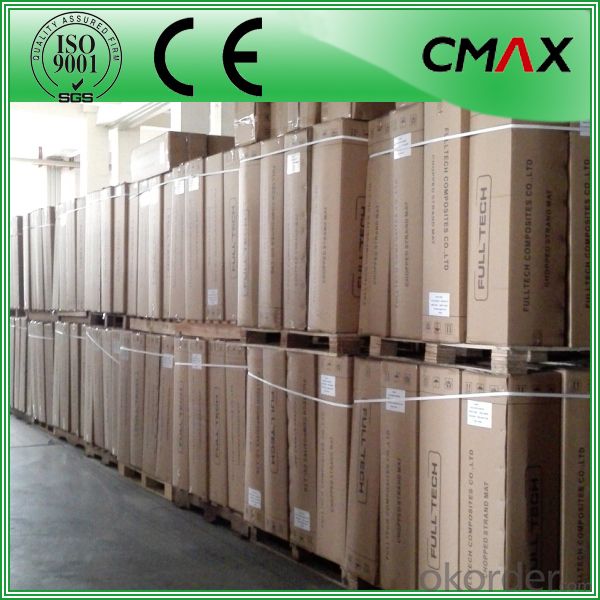
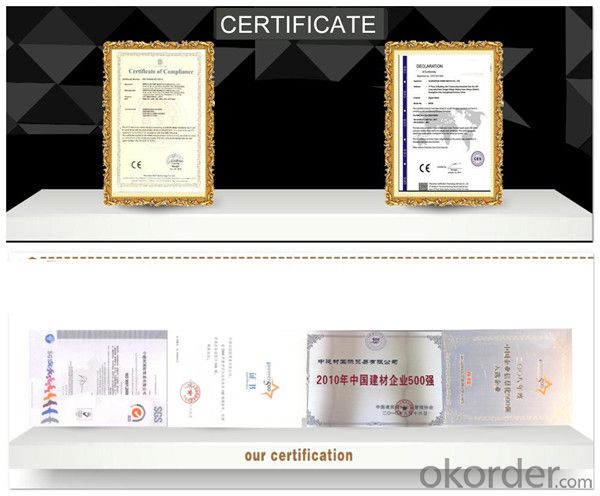
FAQ:
Is sample available ?
Yes, we provide the free samples, but customers themselves need pay the shipping fee
What's your MOQ?
Our MOQ is one 1*20' full container loading
How do you pack the fiberglass
(1) First, the mat is in roll packed in White PE fIlm.
(2) Then the rolls packed in the carton
4.Which knid of payment terms can you accept?
We can accept 30% prepayment, 70% payment before shippment. LC is also accepted
- Q: What are the common sizes available for fiberglass mat tissue?
- The common sizes available for fiberglass mat tissue vary, but typically range from 1.27 meters (50 inches) to 2.54 meters (100 inches) in width, and can be customized to desired lengths by manufacturers.
- Q: Can fiberglass mat tissue be used for insulation in underground pipelines?
- Indeed, insulation in underground pipelines can be achieved using fiberglass mat tissue. Renowned for its outstanding thermal insulation characteristics, fiberglass mat tissue is widely employed across diverse industrial sectors, including underground pipeline installations. By impeding heat transfer between the pipeline and its surroundings, it effectively sustains the desired temperature within the pipeline, thereby providing insulation. Furthermore, fiberglass mat tissue exhibits resistance against moisture, chemicals, and corrosion, rendering it an optimal selection for underground scenarios where pipelines face harsh conditions. Consequently, fiberglass mat tissue emerges as a dependable and efficacious insulation material for underground pipelines.
- Q: Can fiberglass mat tissue be used for insulation in cold environments?
- Indeed, fiberglass mat tissue is a viable option for insulation purposes in frigid settings. Fiberglass, renowned for its remarkable thermal characteristics, is frequently employed as an insulating material. Its capacity to hinder heat transfer is owed to its low thermal conductivity, effectively ensuring insulation in cold environments. Tailored specifically for thermal insulation, fiberglass mat tissue is commonly utilized in various applications such as walls, roofs, and floors to thwart heat dissipation and maintain a cozy indoor temperature. Moreover, fiberglass boasts resistance to moisture and exhibits durability, rendering it impervious to degradation and loss of insulating properties in cold and damp conditions. Consequently, fiberglass emerges as an apt choice for insulation in cold environments.
- Q: Does fiberglass mat tissue require any special treatment for UV resistance?
- Yes, fiberglass mat tissue does require special treatment for UV resistance. Without proper protection, the fiberglass mat tissue can degrade and weaken when exposed to sunlight and UV rays. Applying a UV-resistant coating or using a UV protective film can help enhance its durability and resistance to UV damage.
- Q: Can fiberglass mat tissue be used for reinforcing wind turbine blades?
- Yes, fiberglass mat tissue can be used for reinforcing wind turbine blades. Fiberglass mat tissue is a lightweight and flexible material made from thin glass fibers bonded together with a resin. It is commonly used in various applications where strength and durability are required, including the construction of wind turbine blades. Wind turbine blades need to be strong yet lightweight to efficiently harness the power of the wind. They are exposed to various forces such as wind loads, vibrations, and extreme weather conditions. Fiberglass mat tissue is an ideal choice for reinforcing these blades due to its excellent mechanical properties. It provides high tensile strength and stiffness, which helps the blades withstand the stress and strain they experience during operation. Additionally, fiberglass mat tissue has good resistance to corrosion and fatigue, which are important factors for the long-term performance of wind turbine blades. It also offers good dimensional stability, ensuring that the shape and integrity of the blades are maintained over time. Furthermore, fiberglass mat tissue can be easily molded and shaped, allowing for complex and aerodynamic blade designs. It can be layered and combined with other materials, such as epoxy resin, to create a composite structure that maximizes the strength and performance of the wind turbine blades. In conclusion, fiberglass mat tissue is a suitable and commonly used material for reinforcing wind turbine blades. Its lightweight, high strength, corrosion resistance, and moldability make it an excellent choice for ensuring the structural integrity and efficiency of wind turbines.
- Q: What is the weathering resistance of fiberglass mat tissue?
- The weathering resistance of fiberglass mat tissue is generally considered to be high. Fiberglass mat tissue is made from a combination of fiberglass strands and a binder material, such as polyester or acrylic. This combination creates a strong and durable material that is resistant to various weathering factors, including exposure to sunlight, moisture, and temperature fluctuations. The fiberglass strands in the mat tissue provide excellent mechanical strength, preventing the material from breaking down under external stress or pressure. This strength helps the mat tissue withstand the impact of wind, rain, and other weather elements without significant damage. Additionally, the binder material used in the manufacturing process of fiberglass mat tissue is often formulated to be resistant to UV radiation. This UV resistance helps to protect the material from degradation and color fading caused by prolonged exposure to sunlight. It also helps to maintain the structural integrity and strength of the mat tissue over time. Furthermore, fiberglass mat tissue is also resistant to moisture and water absorption. This resistance prevents the material from becoming weakened or deteriorated when exposed to rain, humidity, or other moisture sources. As a result, the mat tissue remains intact and retains its performance properties even in wet or humid conditions. Overall, the weathering resistance of fiberglass mat tissue is considered to be excellent, making it a popular choice for various applications where durability and longevity in outdoor environments are required.
- Q: How does the fiber orientation of fiberglass mat tissue affect its strength?
- The fiber orientation of fiberglass mat tissue greatly affects its strength. When the fibers are aligned in a specific direction, they provide maximum strength in that direction. However, if the fibers are randomly oriented, the overall strength of the material is reduced as the load may not be evenly distributed among the fibers. Therefore, proper fiber orientation is crucial in maximizing the strength of fiberglass mat tissue.
- Q: Can fiberglass mat tissue be used for automotive applications?
- Yes, fiberglass mat tissue can be used for automotive applications. Fiberglass mat tissue is a versatile material that is commonly used in the automotive industry for various purposes. It is often used as a reinforcement material in composite parts, such as bumpers, body panels, and interior components. The high strength and lightweight properties of fiberglass mat tissue make it an ideal choice for automotive applications, as it helps to enhance the overall performance and durability of the vehicle. Additionally, fiberglass mat tissue can also provide excellent sound insulation and vibration damping properties, which are crucial for improving the comfort and noise reduction in automobiles. Overall, fiberglass mat tissue is a reliable and widely used material in the automotive industry, contributing to the production of high-quality and efficient vehicles.
- Q: Can fiberglass mat tissue be used for repairing automotive parts?
- Yes, fiberglass mat tissue can be used for repairing automotive parts. It is commonly used in automotive repairs as it provides strength and durability to the repaired area. The mat tissue can be applied with resin to reinforce damaged or weakened sections of automotive parts, making it an effective solution for repairing various components.
- Q: Can fiberglass mat tissue be used for repairing fiberglass RVs?
- Yes, fiberglass mat tissue can be used for repairing fiberglass RVs. It is commonly used for reinforcing and repairing fiberglass structures, including RVs, due to its strength and compatibility with fiberglass materials.
Send your message to us
Fiberglass Mat Tissue Chopped Strand Mat Fiberglass Mat Jushi Strand Mat
- Loading Port:
- China main port
- Payment Terms:
- TT OR LC
- Min Order Qty:
- 1000 m.t
- Supply Capability:
- 1000000 m.t/month
OKorder Service Pledge
OKorder Financial Service
Similar products
Hot products
Hot Searches
Related keywords

